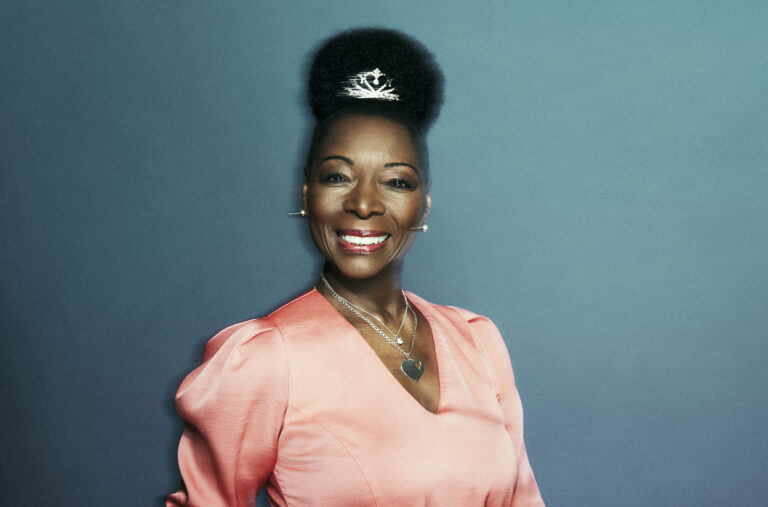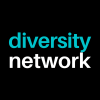Julie Reynolds’ purpose in life is to change attitudes and behaviours to help organisations become actively inclusive. “I am not afraid to challenge the status quo,” says diversity and inclusion consultant Julie, who uses storytelling to break down barriers in both recruitment and retention of employees
Q: You are a disabled person who has experienced barriers to finding a job in the charity, heritage and healthcare sectors. Can you share what are the biggest issues you came up against trying to enter and stay in the workplace?
A: “I believe in #Equity for all. To me this is an even platform for people to apply, interview and stay in jobs in any sector and flourish and not being disabled by barriers to these. Just two of the barriers I have faced are job adverts and the issue of presenteeism – although I speak from personal experience and know that others will face different challenges.
“Job adverts have many barriers but I will just focus on one – language. For me, if ‘enthusiastic’ and ‘dynamic’ are used, it usually means that either the job description is a template or is indicative to me that mental health conditions and behaviours may not be understood. I am going through an assessment to see if I have ADHD and have other mental health conditions, and as can be seen on my LinkedIn recommendations ‘enthusiastic’ is used to describe me. Now don’t get me wrong, I am very committed to my work and always end up over-delivering. However, I now realise this is a behavioural trait that needs to be understood by my contractor because this way of working every day is not realistic. A recent contractor, who now mentors me, said at our last meeting: ‘be careful, we know you always take on too much’.
“A health passport would be a good way to help me and my contractor when I am ‘taking on too much’ but I haven’t seen in a job advert yet an employer or contractor publish they have a passport scheme.
“Presenteeism is another barrier I have found. I often reference Luis Suarez who is a strategist who said back in 2012 that ‘work is no longer a physical space, but a state of mind.’.
“Many of us, especially freelancers and knowledge workers, have worked in a distributed working model for a long time. This way of working is collaborative, it breaks down hierarchies and is skill-based. It achieves empowerment and innovation, which can be stifled in hierarchical organisations where presenteeism has been elevated in value above the actual work being delivered.
“If set hours and a job description/tender is focused on a rigid structure of presenteeism (one to five days in an office a week, for example), I won’t apply. I won’t do so because this is not feasible with my fluctuating conditions.
“Alternatively, I will approach the contact in the advert to ask about the opportunity for the role to be a job share and working from home with going in once a month to the office. All my work is about human stories, and I love learning and meeting people, including face-to-face. However, I do find being in the office unproductive for work, the environment is too noisy and distracting.”
Q: Why do you think organisations aren’t doing well in the area of accessibility?
A: “Many organisations, whatever sector or shape or size, I believe do not want barriers to exist for people, especially when it comes to keeping staff. Having a high staff turnover must cost an organisation a lot in time and money. Unfortunately, many of us are disabled by barriers in organisations that push us or manage us out. Primarily, and sadly, these are usually when we bring up adjustments or changing existing adjustments.
“There are lots of organisations shouting out about how they are inclusive, and how we can bring ourselves to work. This is fabulous. The intention is there, but a holistic approach needs to be entrenched in any organisation to create proper culture change.
“Behaviours often stop implementation of inclusive policies, strategies and good intentions. Psychological safety needs to throughout any organisation. Holistic and kind approaches coupled with specialist staff experienced in reasonable adjustments need to be in place to ensure that staff don’t leave. If conversations around adjustments is hostile, people will leave so blockers of #Equity need to be held accountable.
“It was not long ago that we had Section 28 in England. This was a time I remember quite clearly and I hid my sexuality for a long time – it’s only now as I approach 50 I feel comfortable in certain environments to be open. Currently, there are still echoes of the negative and violent attitudes from people around sexuality and gender. Social attitudes are slowly becoming more inclusive, but we all choose to share what we feel comfortable with and with whom. An organisational strategy of ‘bring yourself to work’ and ‘we are inclusive’ must really show this by its actions, and how it supports us through equitable attitudes and behaviours.”
Q: Your work now focuses on engagement using the Etienne Wenger Community of Practice method which means everyone’s voice in an organisation should be listened to, to ensure inclusion and accessibility. Tell us more.
A: “I have been self-employed since 1996. Working in PAYE roles to pay the rent and self-employed to share stories and voices through curatorial, research, development. I was introduced to Etienne’s Wenger’s work by Paul Corney and Victoria Ward whilst working as an Associate on Knowledge Management (Storytelling and Curating Knowledge) projects for business and NGOs. I strongly believe in everyone’s skills and knowledge having an even platform and collaboration working practices. This way of working, I am very aware, challenges hierarchical structures and exposes them too. It is a human-centred approach to working practice, and this is what I advocate for. I am interested in facilitating hidden knowledge and stories to be heard, acknowledged and valued.
“I referred earlier to the work of Luis Suarez, who also said a decade ago:
‘…it looks like with the opportunity of embracing social networking tools for business that we are enjoying nowadays, there is a new rush in trying to figure out whether social technologies can finally free up knowledge workers from the yoke of the traditional office, resulting, if anything, on what I feel has been one of the main mantras behind both Social Business and the future of work meme: work is no longer a physical space, but a state of mind.’
“This is the only way I am willing to work. It’s less stressful. I don’t have to negotiate contract hours, have presenteeism or work in a micro-management environment. My hybrid skills and knowledge are utilised, seen, and valued. Finally, I can work collectively with nice and highly skilled people in my network on projects that reflect our ethics and values of working; to support equity in the workplace.”
Q: Tell us about how you use storytelling in your workshops and training with employers and employees?
“I use storytelling in many ways. To me it’s a natural part of communicating knowledge, expertise, insights, and experiences to influence policy, strategy, inclusion… I could go on. For employers and contractors, here are some of my strategies:
- Story Cube workshop
One of the workshops I ran we used Story Cubes (dice with small pictures instead of numbers). The aim was to use stories to explore what long term financial strategy meant to each person and discuss financial cuts. I created a guide so people could do the workshop again on their own. - Development of an employee training online platform
I used stories from a business archive to create learning modules to assist a specific behavioural change. There was a new system to be implemented and the development of an online learning platform accompanied this. The training modules were carried out on site in a gallery in a national museum. This was a great learning exercise, as it pushed the boundaries and opened creativity of thought for us to collaborate and finalise the modules.
For employees
- Knowledge Exchange workshops: I form workshops with Lived Experience Stories embedded in the agenda and exercises. Lived experience helps people be empathetic and understand others’ needs and to learn outside their existing terms of reference.
- Storytelling training
I combine narrative methodology, oral history methodology and qualitative research to gather stories. Being able to not only listen but actually hear the stories is important. I have developed a model that works for me, but I am constantly learning and refining. Of late I have enjoyed learning from peers in the Storytelling arena around ethical Storytelling. Working on Storytelling Training for colleagues is rewarding. Establishing what their needs at the beginning and then learning what they have got out of it at the end and watching them become Story gatherers is satisfying.
Q: What would your three pieces of advice to employees be?
- Peer support
Reaching out to people you admire, would like to learn from or work with at some point, or with whom you have the same values and ethics, is so important. Sometimes, a message to someone might not be replied to, but don’t be disheartened. You will find your support group. They are there to share things and if you feel comfortable to do so, shout out on those days where frustration takes over, and they are there to reflect and learn from. They help us stay connected and help our wellbeing. - Those conversations around ‘reasonable adjustments’. This is a tough subject to talk about and I don’t know the solutions to the many problems that many of us have. All I can say, is that over the last eight years, especially since last July, I have learnt to find my voice and know what working environment supports me equitably and will only work for an organisation that provides it.
This is a personal choice and doesn’t work for everyone. My advice would be chat to peers, seek support from Disability Rights UK, Evenbreak, Scope, Disability Union and other support charities or networks. Find allies in your organisation to help and for support. Having done so, then make a personal choice on what journey you want to take with ‘reasonable adjustment’ conversations.
Hopefully one day, we won’t have to have these conversations, and the working environment will be equitable for us, and we won’t have to constantly justify wanting equity.
- Remember you are amazing. Four years ago, my manager had a management style and personal character that was warm, supportive, and encouraging. We worked in a fast environment and had many demands from all over the organisation and externally too. They were always solution-based and kept us all upbeat. They complimented good work and us as people. They always reminded us all we were amazing. My advice is, you are amazing and don’t forget to interview your future managers or employers – seek out those that provide an environment for you to thrive and flourish.
Q: What are some examples of organisations doing well in the area of accessibility?
A: “For me it’s more about an organisation being actively inclusive by providing an equitable working environment.
“From the outside, I haven’t the experience of working with this organisation first hand, but the arts organisation Unlimited (weareunlimited.org.uk) have a very inclusive recruitment model. I have seen very open language in their job adverts and different ways of applying and interviewing are offered.
“From the inside, I had a contract at a national museum. During this time, I had many infections and was affected by these for some time. My manager was very supportive, kind, and caring, and we talked about me attending occupational health to formulate adjustments. We agreed on adjusted hours and there was no expectation for me to be in the office and I would be pre-warned if people in the office were infected with colds/flu so I could arrange to WFH. I delivered my project work for the contract and then some. I didn’t feel different or stand out from my colleagues as a result I felt I had equity.”
Q: The progress of change for people with disabilities is slow. Are you hopeful for the future?
A: “During my lifetime, I want to use my skills and knowledge to work on projects to help create attitudinal change so working environments for a 50-year-old, 50 years from now are equitable for all. I work with great people who all have this drive to create equity. I have set up a cross-sector network with allies in heritage, charities, NHS and business. Together we share knowledge and insights, and are developing a tangible influencing programme – more to come later in 2023.
“I am passionate and driven to change how jobs are currently shaped. I am learning how to do this with some fabulous people.
“I hope our collective vision creates long term change and active inclusion is the norm and not discussed as a separate entity in 50 years’ time.”
.





